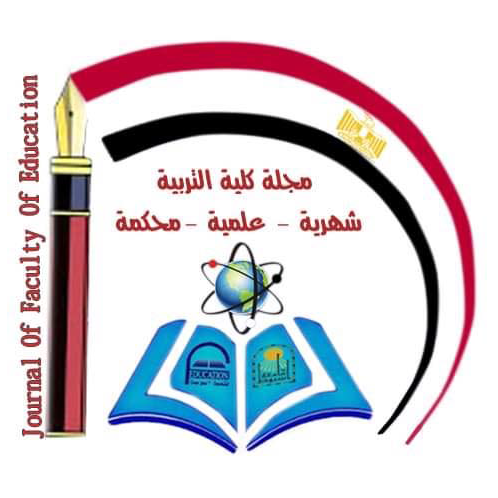Journal of Faculty of Education Assiut University - المجلة العلمية بكلية التربية-جامعة أسيوط

Article Title
الآداب التربوية لطالب العلم مع كتابه من خلال كتاب الدر النضيد لأبي البركات الغزي ت(984هـ)
Abstract
The researcher used the deductive method, as the research aimed to identify the educational ethics of student of knowledge through the book "al-Dur al-Nadid fi Adab al-Mufi wal Mustafid by Abu al-Barakat Badrudeen Muhammad bin Muhammad al-Ghazzi, by identifying the ethics of the student of knowledge in the acquisition of books and loaning them, and in the ethics of student of knowledge in reading and arranging them, and in his ethics in copying and investigating them, and in his ethics in writing and publishing the book. The most prominent results are: that the Islamic educational heritage has entailed all educational ethics related to the process of teaching and learning, and that Abu al-Barakat Al-Ghazzi presented the most accurate details on the ethics of student of knowledge with his books. That the ethics of student of knowledge with his book in the opinion of Abu al-Barakat Al-Ghazzi, can be highlighted through five points: The ethics of student of knowledge in his collection of the book, the ethics in loaning the book, the ethics in reading and arranging books, the ethics in investigating and perfecting his book, and the ethics in producing and publishing the book. The researcher recommends paying attention to the ethics mentioned in the research and extracted from the book "al-Dur al-Nadid" by Abu al-Barakat al-Ghazzi, noting the Shariah` aspects mentioned through the ethics and not neglecting them, and working to disseminate these ethics among the educated, and students of knowledge, to spread the benefit.
Recommended Citation
العريني, عبد اللطيف
(2020)
"الآداب التربوية لطالب العلم مع كتابه من خلال كتاب الدر النضيد لأبي البركات الغزي ت(984هـ),"
Journal of Faculty of Education Assiut University - المجلة العلمية بكلية التربية-جامعة أسيوط: Vol. 36
:
No.
5
, Article 9.
Available at:
https://digitalcommons.aaru.edu.jo/jfe_au/vol36/iss5/9

